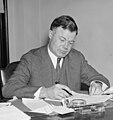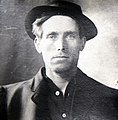
Introduction

- In trade unions, workers campaign for higher wages, better working conditions and fair treatment from their employers, and through the implementation of labour laws, from their governments. They do this through collective bargaining, sectoral bargaining, and when needed, strike action. In some countries, co-determination gives representatives of workers seats on the board of directors of their employers.
- Political parties representing the interests of workers campaign for labour rights, social security and the welfare state. They are usually called a labour party (in English-speaking countries), a social democratic party (in Germanic and Slavic countries), a socialist party (in Romance countries), or sometimes a workers' party.
- Though historically less prominent, the cooperative movement campaigns to replace capitalist ownership of the economy with worker cooperatives, consumer cooperatives, and other types of cooperative ownership. This is related to the concept of economic democracy.
The labour movement developed as a response to capitalism and the Industrial Revolution of the late 18th and early 19th centuries, at about the same time as socialism. The early goals of the movement were the right to unionise, the right to vote, democracy and the 40-hour week. As these were achieved in many of the advanced economies of western Europe and north America in the early decades of the 20th century, the labour movement expanded to issues of welfare and social insurance, wealth distribution and income distribution, public services like health care and education, social housing and common ownership. (Full article...)
Selected article
The University and College Union (UCU) is a British trade union in further and higher education representing over 120,000 academics and support staff.
UCU is a vertical union representing casualised researchers and teaching staff, "permanent" lecturers and academic related professional services staff. Definitions of all these categories are currently rather ambiguous due to recent changes in fixed term and open-ended contract law. In many universities, casualised academics form the largest category of staff and UCU members. (Full article...)
December in Labor History
Significant dates in labour history.
- December 01 - W. A. Boyle was born; the Federated Ship Painters and Dockers Union was dissolved
- December 02 - The Professional Footballers' Association was founded
- December 03 - Tom Mooney died
- December 04 - The American Federation of Labor and Congress of Industrial Organizations were dissolved; George L. Berry died; the 2007 South Africa miners' strike occurred
- December 05 - The American Federation of Labor and Congress of Industrial Organizations merged to form the AFL–CIO
- December 06 - Santa Marta massacre occurred in Colombia in 1928; the Bituminous coal strike of 1977–78 began in the U.S.; the Socialist Trade and Labor Alliance was founded
- December 07 - The International Union of Operating Engineers was founded; the Fiji Teachers Union was founded; Vere Bird was born
- December 08 - Federation of Organized Trades and Labor Unions disbanded to from the American Federation of Labor; Anil Moonesinghe died; Bernice Fisher was born
- December 09 - Thomas Hepburn died; the International Federation of Building and Wood Workers was dissolved; Bob Hawke was born; Selig Perlman was born; Pablo Iglesias died
- December 10 - Jean Maitron is born; the American Federation of Teachers won its first collective bargaining election
- December 11 - The Union of Democratic Mineworkers was founded
- December 12 - Ron Carey died; Michael Ratchford died; Anthony Provenzano died; Charles Ballam died; Tommy Lewis was born
- December 13 - Samuel Gompers died; Bernard Kleiman died; William Spence died; the U.S. Supreme Court decided United States v. Wheeler
- December 15 - George Hardy was born; George W. Taylor died; Chico Mendes was born; Mark Hewitson was born; Clinton Jencks died
- December 16 - The Rothbury riot occurred in 1929 in Australia
- December 17 - Clarence Gillis died; Mustafa al-Hallaj died
- December 18 - The Transport and General Workers' Union and Amicus voted to merge into a new union, Unite, in 2006; the Cincinnati Federation of Teachers was formed; the Supreme Court of Canada issued its landmark ruling in RWDSU v. Dolphin Delivery Ltd.; Douglas Fraser was born; Randi Weingarten was born
- December 19 - Frank Keys Foster was born; the Ford Strike of 1945 in Canada ended; B. T. Ranadive was born
- December 20 - The 2005 New York City transit strike began; two of the Sydney Twelve were executed in Australia in 1916; the Supreme Court of Canada issued its landmark ruling in Dunmore v. Ontario (Attorney General); the Occupational Safety and Health Act became law in the U.S. in 1970; Richard Cordtz was born
- December 21 - William Usery Jr. was born
- December 22 - Chico Mendes died; the 2005 New York City transit strike ended
- December 23 - 1929 Australian timber workers' strike began; Gunnar Sträng was born; Derek Simpson was born; Ella Vogelaar was born
- December 24 - Ed Boyce died; the Electrical Trades Union of Australia was formed; Italian Hall Disaster in 1913
- December 25 - Ed Hochuli was born; Bartholomew Ulufa'alu was born; Philip Vera Cruz was born
- December 26 - A series of general strikes began in 1996 in South Korea; Dave Beck died
- December 27 - Cyrus S. Ching died; Free Workers' Union of Germany was founded; William Konyha died; John La Rose was born; Makhan Singh was born
- December 28 - Agnes Nestor died
- December 29 - Flint sit-down strike began in 1936; the Indian Labour Organization was founded; Ted Theodore was born
- December 30 - Bill Tytla died
- December 31 - The International Typographical Union was dissolved; Joseph Yablonski was murdered on the orders of United Mine Workers president W. A. Boyle; John Garden died
More Did you know (auto-generated)
- ... that the 1937 Fleischer Studios strike in New York City was the first major labor strike in the animation industry?
- ... that following the ban of its labour unions in 1934, the Romanian United Socialist Party would rely on its youth and women's wings for political action?
- ... that the communist trade unionist Ditto Pölzl was a member of all three provisional state governments of Styria in 1945?
- ... that the opening day of a California TV station was affected by a strike when workers refused to cross a two-man picket line?
- ... that the execution of Burkinabé trade union leader Soumane Touré was prevented by the intervention of his childhood friend, then-president Thomas Sankara?
- ... that the day after returning to Atlanta following his Nobel Peace Prize acceptance in 1964, Martin Luther King Jr. joined picketers who were on strike against Scripto?
Related Portals
Selected image
Selected Quote
Labor is prior to, and independent of, capital. Capital is only the fruit of labor, and could never have existed if Labor had not first existed. Labor is superior to capital, and deserves much the higher consideration."
|
— Abraham Lincoln. |
Did you know
- ...that labor union activist Sam Pollock, who helped lead the Auto-Lite Strike, is the grandfather of noted experimental filmmaker Damon Packard?
- ...that South African trade union legislation uses the term "conscientious objector" to refer to workers who do not want to join unions on the basis of personal beliefs?
- ...that during a copper miners' strike in Michigan in 1913, labor leader Charles Moyer was shot in the back by unknown assailants and then expelled by Calumet city police while still bleeding?
Topics
Get involved
Also see our sister WikiProject, Housing and Tenant Rights!
Associated Wikimedia
The following Wikimedia Foundation sister projects provide more on this subject:
-
Commons
Free media repository -
Wikibooks
Free textbooks and manuals -
Wikidata
Free knowledge base -
Wikinews
Free-content news -
Wikiquote
Collection of quotations -
Wikisource
Free-content library -
Wikiversity
Free learning tools -
Wiktionary
Dictionary and thesaurus















































































